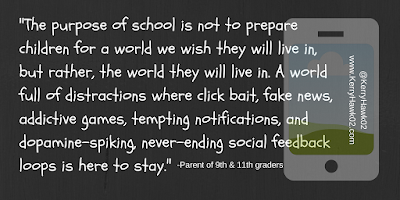The Problem(s) with Choosing EdTech Tools for Your School

If you have ever been the lead teacher, technologist, or administrator tasked with finding the right tech tool for your school or district, here are a few scenarios that might seem familiar: You walk through the flashy fun exhibit hall at an edtech conference. The vendors are friendly, helpful, and give you plenty of hands-on opportunities with their product. You leave with handouts, email addresses, and lots of hope. But when you get back to school, you feel overwhelmed as you flip through all of the information. What’s next? As you look for a solution to your school/district’s particular situation, it is easy to go with one of the big companies with a big reputation. They might be exactly what you need. But they might also have a big price tag, inattentive product support, and updates or interface design changes that come without warning. Well, it is what everyone else is doing, right? Vocal teachers have always been the beneficiaries of both budgetary and time considerat
